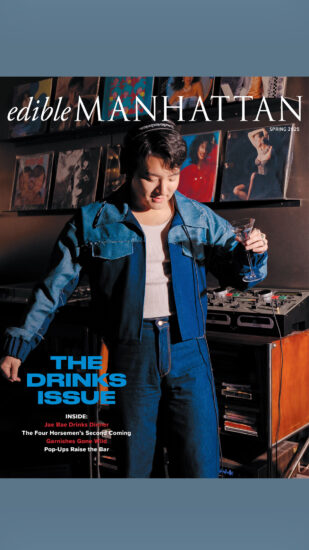
Earlier this week I attended the second annual “Fill Our Shelves Luncheon” for the West Side Campaign Against Hunger, which is housed in the basement of the Church of Saint Paul and Saint Andrew on West 86th Street and West End Avenue. It was a festive event, where beaming students and graduates of the food pantry’s 12-week chef job training class served up a six course buffet lunch for 135 guests.
Underneath the convivial buzz, however, was an urgent message. As at food pantries across the city, the rising tide of food insecurity in the city is stretching WSCAH’s resources like never before. “I come to you in a time of crisis,” Executive Director Doreen Wohl told the audience. Need has risen 20 percent this year, and 40 percent since 2010. The task of feeding the growing number of New Yorkers who are going hungry, Wohl said, has put the agency $110,000 in the red, The day’s event raised $28,000, enough to provide well over 10,000 meals to the hungry.
For 33 years, WSCAH has been helping fight hunger in New York City using a progressive approach that emphasizes self-determination and dignity. Instead of handing out pre-packaged bags of groceries, the pantry created the first system in the country where customers shop the aisles of a supermarket-style pantry, stocked with donated canned and dried goods and bins full of high-quality produce, the overflow of neighborhood CSAs.
A shopping card allows them to select three days worth of groceries in eight different categories, which promotes a balanced diet with an emphasis on protein, vegetables, fruit and dairy products. Social service counseling, job training, nutrition education, cooking demonstrations and exercise classes help people who have fallen between the cracks find jobs and regain self-sufficiency.
As guests sipped peach-ginger tea and dined on delicious roasted spring vegetables, an assortment of five spring salads and donated Shake Shack frozen custard, advisory board member Daniele Gerard discussed the federal 2012 Farm Bill, which allocates funding for food stamps, conservation practices and farm subsidies. It’s set to expire at the end of September, and the Senate version of the renewed bill includes massive proposed cuts to anti-hunger programs. Gerard asked audience members to urge Senator Charles Schumer to vote against any measures that would reduce the food stamp program, now known as the Supplemental Nutrition Assistance Program (SNAP).
Seated at my table was Steve Rogers, board chair of WSCAH, who noted that SNAP is the single most effective way we have now to feed the hungry. What WSCAH does is effective on a small scale, he explained, but not a long-term solution. This year, WSCAH will feed 127,000 people; an all-time high of 1.84 million New Yorkers now rely on SNAP. (Editor’s note: SNAP recipients can also use the program to buy seeds to grow their own food, to read more about one man’s plan to grow SNAP gardens in Edible Manhattan, click here.)
WSCAH is part of a coalition of advocacy groups that supports this set of Food and Farm Bill Principles, and everyone can do their part by signing on here.



